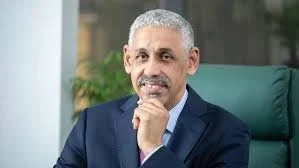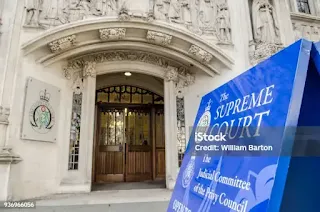Catholic cardinals will convene on May 7, 2025 to begin voting for a new pope, the Vatican made the announcement on Monday, April 28, 2025, a week after the demise of Pope Francis.
The “Princes of the Church” under the age of 80 will gather in the Sistine Chapel to elect a new spiritual leader for the world’s 1.4 billion Catholics.
The date was decided during a meeting of cardinals of all ages early on Monday, two days after the funeral of Francis, who passed away on Easter Monday April 21, 2025 at the age of 88.
The Church’s 252 cardinals were summoned back to Rome following the Argentine’s death, although only 135 are eligible to vote in the papal conclave.
The cardinals hail from all corners of the globe, and many of them are unfamiliar with one another.
However, they have already held four meetings last week, known as “general congregations”, where they began to acquaint themselves better.
The “Princes of the Church” under the age of 80 will gather in the Sistine Chapel to elect a new spiritual leader for the world’s 1.4 billion Catholics.
The date was decided during a meeting of cardinals of all ages early on Monday, two days after the funeral of Francis, who passed away on 21 April at the age of 88.
The Church’s 252 cardinals were summoned to Rome following the Argentine’s death, although only 135 are eligible to vote in the conclave.
The cardinals hail from all corners of the globe, and many of them are unfamiliar with one another.
However, they have already held four meetings last week, known as “general congregations”, where they began to acquaint themselves better.
Cardinal Gualtiero Bassetti, 83, a former head of the Italian bishops’ conference, described the atmosphere as “beautiful and fraternal”.
“Of course, there may be some difficulties because the voters have never been so numerous, and not everyone knows each other,” he told Italy’s Corriere della Sera newspaper. On Monday, the Vatican closed the Sistine Chapel, where voting will take place under Michelangelo’s 16th-century ceiling frescoes, to commence preparations.
So far, there are few indications as to whom the cardinals might choose.
“I believe that if Francis has been the pope of surprises, this conclave will be too, as it is not at all predictable,” Spanish Cardinal Jose Cobo said in in an interview on Sunday.
Francis was laid to rest on Saturday with a funeral and burial ceremony that drew 400,000 people to St Peter’s Square and beyond, including royalty, world leaders, and ordinary pilgrims.
On Sunday, approximately 70,000 mourners filed past his marble tomb in the Santa Maria Maggiore Basilica in Rome, after the “pope of the poor” opted to be buried outside the Vatican’s walls.
Amid conflicts and diplomatic crises around the world, Italian Cardinal Pietro Parolin, who served as secretary of state — the pope’s second-in-command — under Pope Francis, is considered by many to be the favourite to succeed him.
British bookmakers William Hill have placed him slightly ahead of Filipino Luis Antonio Tagle, the Metropolitan Archbishop Emeritus of Manila, followed by Ghana’s Cardinal Peter Turkson.
Next in their odds are Matteo Zuppi, the Archbishop of Bologna; Guinea’s Cardinal Robert Sarah; and Pierbattista Pizzaballa, the Latin Patriarch of Jerusalem.
While Pope Francis’s efforts to create a more compassionate Church earned him widespread affection and respect, some of his reforms angered the Church’s conservative wing, particularly in the United States and Africa. Roberto Regoli, a professor of Church history and culture at the Pontifical Gregorian University in Rome, told the press that the cardinals would be seeking “someone who knows how to forge greater unity”.
“We are in a period in which Catholicism is experiencing various polarisations, so I don’t imagine it will be a very, very quick conclave,” he said.
Bassetti, who is too old to participate, expressed his belief that it “will not be long”.
Approximately 80 per cent of the cardinal electors were appointed by Pope Francis — though this does not guarantee they will select a successor in his likeness.
Most are relatively young, and for many, this will be their first conclave. The vote is highly secretive and adheres to strict rules and ceremonial procedures. The process could take several days or potentially longer.
There are four votes per day — two in the morning and two in the afternoon — until one candidate secures a two-thirds majority.
Fewer than half of those eligible to vote are European.
“The future pope must have a universal heart, love all the continents. We must not look at colour, at origin, but at what is proposed,” Cardinal Dieudonne Nzapalainga from the Central African Republic told the Italian newspaper Il Messaggero.
“We need a courageous leader, a bold one, capable of speaking forcefully, of holding the helm of the Church steady even in storms… offering stability in an era of great uncertainty.”
Patrizia Spotti, a 68-year-old Italian visiting Rome for the 2026 Jubilee holy year, told AFP on Monday that she hoped the new pontiff “will be a pope like Francis”.
It is a challenging time for Catholicism, she said.
“Churches are empty. And the Church itself has made mistakes, all the scandals with the children,” she said, referring to the widespread revelations of clerical sexual abuse.
FN Blog







































